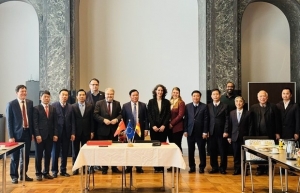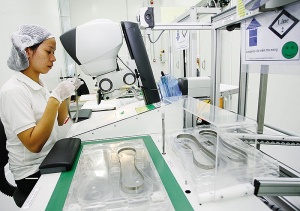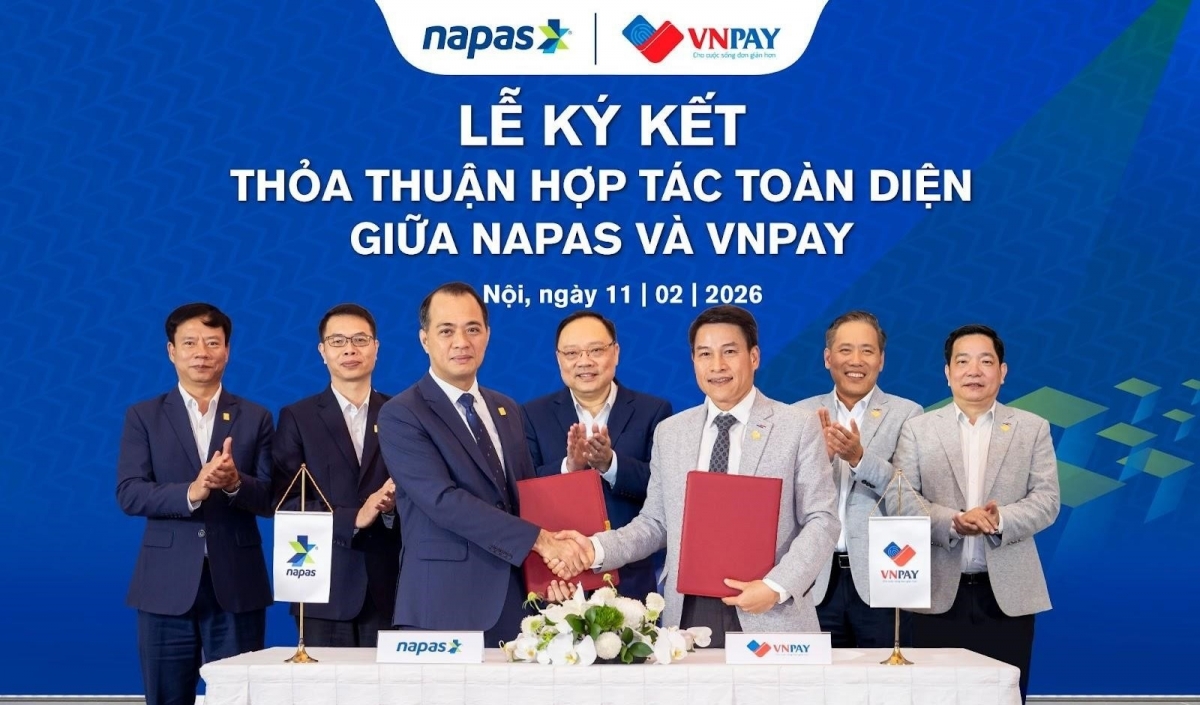INTERNATIONAL INVESTMENT
AND PORTAL
Regarding the compliance aspect, German companies are bound by stringent regulations such as the EU’s Carbon Border Adjustment Mechanism, the German Supply Chain Due Diligence Act, and the Corporate Sustainability Due Diligence Directive. These regulations emphasise promoting environmental protection, enhancing corporate responsibility towards stakeholders, and ensuring sustainable business practices in the communities where these companies operate. Adherence to these standards is crucial for maintaining regulatory compliance and upholding the values Germany and the EU stand for.
 Dao Thu Trang, deputy general director Delegation of German Industry and Commerce in Vietnam
Dao Thu Trang, deputy general director Delegation of German Industry and Commerce in Vietnam
When it comes to commercial aspect, adopting ESG standards is also commercially beneficial for German companies. These practices can create substantial value for shareholders, drive top-line growth, reduce costs, and improve productivity. Moreover, companies that adhere to ESG principles often enjoy better relationships with regulators, which can facilitate smoother operations and enhance their market reputation.
The main collaborative areas between the EU, Vietnam, and ASEAN is environmental protection, climate change mitigation, sustainable connectivity, digitalisation, economic integration, sustainable investment, education, and health. The EU is currently implementing the Global Gateway project in the ASEAN region, with a total investment of €10 billion ($10.87 billion). This project aims to develop smart, sustainable, and digital infrastructure in the region, focusing on renewable energy, transportation, and digitalisation projects.
To become even more attractive for German companies, Vietnam should address several key areas of improvement.
Firstly, enhancing the capabilities of local suppliers will allow them to integrate more deeply into the global supply chains of German companies. This could involve providing support and resources to help local suppliers meet the quality and efficiency standards required by German partners.
Secondly, implementing practical-oriented dual vocational training programmes tailored to the specific needs of German companies will better equip Vietnamese workers with the skills and knowledge necessary to excel in these roles. This will ensure a steady supply of skilled labour aligned with the demands of German businesses operating in Vietnam.
Thirdly, improving infrastructure, including transportation networks, ports, and utilities, will not only facilitate smoother operations for German companies but also enhance the overall business environment in Vietnam. Investing in infrastructure upgrades will contribute to increased efficiency and productivity across various industries.
Next, developing a clear and comprehensive green energy plan will provide certainty and direction for both investors and businesses looking to transition to sustainable practices. This will involve setting clear targets, incentives, and regulations to promote the adoption of renewable energy sources and environmentally friendly technologies.
Lastly, simplifying bureaucratic procedures and streamlining administrative processes will reduce red tape and make it easier for German companies to do business in Vietnam. This could involve digitising paperwork, reducing approval times, and improving coordination between government agencies to create a more business-friendly environment.
Addressing these issues will not only make Vietnam more attractive for German companies but will also contribute to the country’s overall economic development and competitiveness on the global stage.
German businesses value Vietnam for its opportunities to diversify supply chains and establish a strategic base in Asia. The country’s dynamic economic growth, proactive policies, and strategic geographic location make it an attractive investment destination. The EU-Vietnam Free Trade Agreement is also highly valued for boosting trade opportunities and reducing tariffs.
Additionally, Vietnam’s favourable trade policies, absence of local content requirements, and a growing domestic market offer significant opportunities for business expansion. The strong historical and cultural ties between Vietnam and Germany, supported by a large Vietnamese community in Germany and approximately 150,000 Vietnamese who have studied and worked in Germany, further enhance mutual understanding.
However, there are areas needing improvement. According to the AHK World Business Outlook Survey 2024, 90 per cent of German companies face challenges when diversifying their supply chains in Vietnam, with 70 per cent struggling to find suitable qualified suppliers. Half of the businesses encounter complex and unpredictable regulatory requirements, suggesting a need for streamlined regulations.
There is also a shortage of highly skilled labour in certain sectors, such as high technology and engineering, which could be addressed through enhanced education and training programs. The economic legal framework requires refinement to provide a more stable environment for foreign investors. Supply chain disruptions and decreasing demand in some sectors are additional concerns that need attention to ensure continued economic growth and business success.
Despite these challenges, the positive economic outlook for Vietnam remains strong. The AHK WBO Survey 2024 indicates that 57 per cent of German companies expect positive economic development in Vietnam, and 80 per cent plan to continue investing in the country over the next 12 months. With the right improvements, Vietnam can further solidify its position as a prime destination for German businesses.
 Thai Binh boosts investment, trade cooperation with Germany
Thai Binh boosts investment, trade cooperation with Germany
A delegation from the northern province of Thai Binh, led by Deputy Secretary of the provincial Party Committee Nguyen Khac Than, visited several localities and business organisations in Germany from March 25 to 27, in a bid to enhance trade cooperation with and attract direct investment from the European nation.
 Soaring German investments are testament to trust in Vietnam
Soaring German investments are testament to trust in Vietnam
Amid the prevailing winds of trade protectionism and escalating international sanctions, German investment in Vietnam is a testament to investors' trust in the potential of the Southeast Asian country.
 German court rules against Mercedes in emissions case
German court rules against Mercedes in emissions case
A German court ruled Thursday that auto giant Mercedes-Benz knowingly installed emissions-cheating devices in some diesel vehicles, opening the door for owners to seek compensation.
 German Business Association unveils ambitious plan
German Business Association unveils ambitious plan
The German Business Association (GBA) has launched its 2024 action plan, focusing on enhancing interaction with its members, expanding its presence in the northern region, and driving strategic development initiatives to strengthen bilateral economic relations with Vietnam.



















